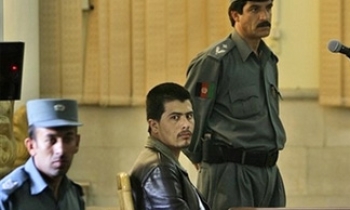Civil society groups have urged the Council of Europe not to ignore calls by its Parliamentary Assembly to send the draft Convention on Access to Official Documents back for redrafting so that it provides strong recognition of the right of access to information.
The Parliamentary Assembly's opinion is due to be considered on November 12 by representatives of the 47 European governments that make up Europe's leading human rights body. Their aim reportedly is to adopt the Convention on Access to Official Documents by the end of 2008.
This is a last opportunity to urge the governments of Europe not to adopt a treaty—the world's first treaty on access to information held by public bodies—which sets overly low standards for this essential democratic right.
The groups are calling on Europe's leaders not to ignore the serious concerns that have been raised by the Parliamentary Assembly of the Council of Europe, in an Opinion of October 3, by over 250 civil society organisations, by Information Commissioners from Estonia, Germany, Hungary, Latvia, Macedonia, Serbia, Slovenia, Switzerland and the UK, by the OSCE's Representative on Freedom of the Media, and by the Council of Europe's own Steering Committee on the Media and New Communication Services.
According to free speech group ARTICLE 19, the problems with the current draft include that it gives a right of access to information to only a narrow range of public bodies and has an unclear definition of the information to which the right applies. In the words of the Parliamentary Assembly, not to change the current draft would allow "some public bodies to continue operating in the shadows."
The draft Convention also does not require maximum time-limits for answering requests, and fails to give requestors a right to appeal to an independent body or court that can order disclosure of information, ARTICLE 19 said in a statement. As the Parliamentary Assembly noted, citing the European Court of Human Rights, information "is a perishable commodity and to delay its publication even for a short period may well deprive it of all value and interest."
Another concern is that—unusually for a Council of Europe human rights treaty—the draft Convention fails to restrict the reservations that States may make to its provisions, thereby creating a risk that the right of access to information will not be fully implemented even in States which have signed the Convention.
For the Council of Europe to ignore all these concerns and to adopt the treaty as it stands risks undermining the right of access to information, in Europe and globally. To ignore the concerns raised by the Parliamentary Assembly would also call into question the democratic processes within the Council of Europe when it comes to standard-setting on human rights, ARTICLE 19 said.
The one-day meeting of the Council of Europe's Rapporteur Group on Human Rights on November 12 has been convened to consider the highly critical opinion of the draft Convention which was adopted by Europe's Parliamentarians (the Parliamentary Assembly of the Council of Europe) on October 3.
The process of drafting was not a highly consultative one with only two NGOs being formally invited. Europe's Information Commissioners (the official expert bodies that oversee access to information laws around Europe) were not formally consulted. Submissions by the OSCE and the Information Commissioners did not result in additional consultation on the substantive issues. The comparative information submitted by civil society on the standards set by the majority of Europe's access to information laws was largely ignored.
The Council of Europe appears to be pushing forward with a treaty which will set a very low standard for the right of access to information—lower than that of many of Europe's existing access to information laws—and will not advance human rights in this area.









